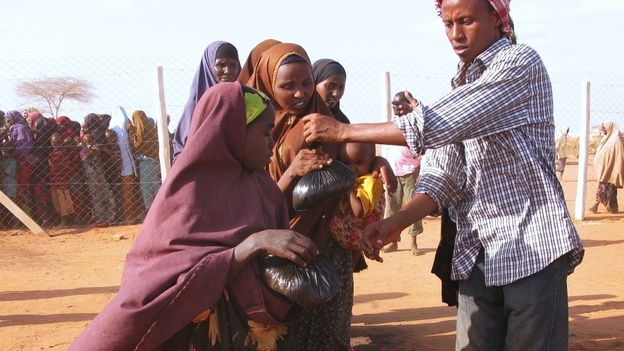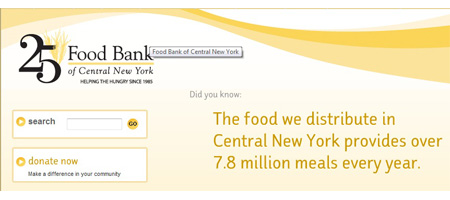Proper 5C; June
9, 2013
1 Kings 17:8-24
Psalm 30
Galatians 1:11-24
Luke 7:11-17
Many years ago, when we lived in a house from which, if we
stood on one corner of the porch and got up on your tiptoes, we could see
Onondaga Lake. In the 1990s, the county was beginning to get it together to
clean up Onondaga Lake, and a campaign was launched: “Salmon 2000.” Clean the
lake up enough that once again salmon would swim in it in abundance. My
husband, Tim, who likes Florida, took it a bit further. Reports of the evidence
of global warming were also in the news, and he was thinking a little of this
climate change might not be such a bad thing for Central New York. “Manatee
2000!” he proclaimed. “Let’s have palm trees on Salina Street!”
As we know, the rain (or snow) fall on the just and the
unjust, and so you could say that all of us will feel the effects of global
warming. But some of us are more equal than others. Maybe we have the resources
to absorb the effects of those changes, here in moderate Central New York, but
millions of people around the world, who live by the seaside, or in flood
plains, or in places which used to be dry and are now desert, can’t. Too much
rain, or too little, and millions of people suffer. And we now know that global
warming didn’t “just happen.”
The widow of Zarephath is suffering from the effects of an
induced climate change. Desertification is already happening. God is punishing
the evil king, Ahab, who is worshipping the false god, Baal, by bringing a
drought to his kingdom. The mighty prophet Elijah tells Ahab and Jezebel that
the power of only the one true God will bring rain and refreshment, and Ahab,
who thinks his power comes from Baal, is very angry. Elijah leaves town, and
God sends him to Sidon, to the home of this desperately poor widow.
If this widow lived in, say, DeWitt, she would pay $2.59 for
a bottle of cooking oil. I don’t know what kind of meal she uses to make this
cake, but if she used flour, it would cost her $1.99 – for five pounds. She is
down to her last few tablespoons of oil, and last cup of flour. This woman is
very, very poor. She is not just desperately poor; she is desolate, empty,
without hope. We can assume that, like her king, Ahab, Baal is her god – Baal,
who in this time of drought and famine has failed her. She is so poor that
Elijah’s request seems an extraordinary imposition, but from some equally
extraordinary reserve of hospitality, she uses her last bit of oil and last
smidgen of meal to make a cake for this stranger. “Do not be afraid,” he says –
you can see the incredulous look in her eyes – “The jar of meal will not be
emptied and the jug of oil will not fail until the day that the Lord sends rain
on the earth.”
And indeed, it happens just as the prophet said. The widow
and her son are provided with food to last. But because famine and poverty take
a devastating toll on the human body, even this sustenance is not enough to
save the life of the widow’s son. She is now one step above desperation; she
has enough energy to be angry, with the prophet and with God, the God who
mustered enough grace to save her but not her child. Elijah then does the
unthinkable, the unimaginable: he brings the child back to life.
When I read
this story I cannot get images out of my mind: images from our world, of people
in war-torn regions, in places of drought and famine, earthquake and flood. Who
are the Elijahs today, who save even a few women and children today? Can any of
them, with their skill and resources, be as confident as Elijah, that God will
give them the power to do what they say, to bring food, and hope and healing to
these people living on the edge of desolation?
When Luke the evangelist writes his account of the life of
Jesus, these are just the stories he finds, and uses. When Luke’s audience
reads the story of Jesus bringing back to life the son of the widow of Nain,
they would remember the power of Elijah, bringing to life the son of the widow
of Zarephath. For Luke, the “usual suspects” are not who are interested in
Jesus. They are too full of their own assurances, their own blessings, they are
too secure in the belief that because they are well off, God has blessed them.
Over and over again, Luke brings up these stories about Elijah, about the
people he heals and helps – people outside of Israel, outside of the covenant,
outside of expectations – people so desperate and desolate that they have
nothing to believe in. Luke emphasizes that it is to these people that Jesus
comes, and that it is these people who understand that the kingdom of God means
new life for everybody, them included.
Think about how much you spend on groceries for one week.
When I looked back, I was shocked to see that our family spent $9000 on food
last year – not restaurants, but food. That is $750 a month. $175 a week.
The Springfield Gardens Food Pantry is about to re-open.
There are people who live in the Town of DeWitt who depend on these groceries
to make it through their month, people whose food income is well under $750 a
month. Perhaps they are not as poor as the widow of Zarephath, but the
disparity of income, in our own community, is shocking.
By the end of June, we have to come up with $3000 in order
to open the food pantry. This money is used to buy food – Tary Simizon who is
on the new board of the food pantry can tell you how it is budgeted, and how
many people will benefit. The Food Bank of Central New York is remarkably
efficient in getting groceries to the people who need them, and our cash
donations go a lot farther with their food than what we could buy at Wegman’s
and donate. $2500 has already been committed. Let’s pledge at St. David’s that
by the end of June, we will get the pantry over the top. We will come up with
$500.
Think about the widow of Zarephath, and that $2.59 she would
need for oil, and the $1.99 she would need for flour. Think of what you spend
on groceries. If your family of four, like ours in 2012, spent $9000, then
maybe you could tithe a month’s worth of groceries, say, $75. Maybe you could
donate ten percent of the cost of a week’s worth of groceries, say, $17.50. Or
one percent: the cost of a cup of coffee. Whatever we can give, I know we can
give, by the end of the month, $500 to support the emergency food needs of our
neighbors, the families of the children who go to school with our children, the
widows who might be living alone, anybody who needs help to make ends meet. If
we do this, it will be a sign. The kingdom of God is at hand.
ENDNOTE: After not too many days had gone past, the congregation raised and donated over $1,000 to the DeWitt Food Pantry. Though us, as through Elijah, God works miracles. Let's keep it up!



No comments:
Post a Comment